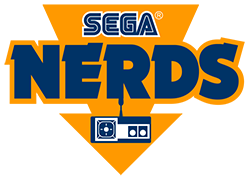
Can SEGA save Nintendo’s Wii U?
Nintendo’s new console is in trouble. With a current library of games that makes it hard for even the most ardent Nintendo fanboy to defend, sales of the Wii U are approaching crisis levels and has caused Nintendo to lower its sales expectations several times.
What’s more troubling, however, is how developers are increasingly publicly distancing themselves from the Wii U at an alarming rate. The only major publisher to recently offer support was Ubisoft, which has some solid games in the pipeline for the Wii U, including Rayman Legends, Assassin’s Creed IV: Black Flag, Watch Dogs and Splinter Cell: Blacklist. The only problem is they’re all multiplatform games, even Rayman Legends, which started its life as a Wii U exclusive.
With industry-wide interest seemingly at an all-time low, Nintendo Global President Satoru Iwata announced a strategic partnership with SEGA, its former rival, during a Nintendo Direct broadcast. The partnership will see SEGA release a multitude of different games across Nintendo platforms but most importantly are the three new Sonic games on the beleaguered Wii U – Sonic: Lost Worlds, Mario & Sonic at the Sochi 2014 Olympic Winter Games and another game that has not been announced but is rumored to be a racing title that will include iconic characters from both SEGA and Nintendo.
The question is, what impact will the “Sonic 3” have on the Wii U?
For starters, let’s first look at the next Olympic title in the series. The original Mario & Sonic at the Olympic Games was a massive success, selling nearly 8 million units worldwide. It wouldn’t be a stretch to imagine Mario & Sonic at the Sochi 2014 Olympic Winter Games will also be very popular just off the Mario and Sonic cast of characters alone.
Next up, is Lost Worlds, and, with how little we currently know about the game, it’s hard to predict how it will do at retail. About the only thing we can go on is looking back at the past, at the only exclusive Sonic game SEGA has released on a Nintendo console. Sonic and the Black Knight sold 1 million units on the Wii during the height of the console’s popularity … pretty disappointing, if you ask me. However, Sonic has come a long way since the days of the Black Knight, and his past several games have been pretty damn good, so Lost Worlds could very well become the system seller the Wii U so desperately needs.
The mystery title is the wild card in all this. According to a series of tweets by Sumo Digital Executive Producer Steve Lycett, he pondered what the studio, which recently shipped the critically acclaimed Sonic & SEGA All Stars Racing Transformed, should do next with the series. He tweeted, “Having a beer, thinking of how we’d follow All-Stars Transformed… (1) I’m thinking we could finally settle some arguments, Who’d really win a kart race… (2).”
Now, the two biggest kart racers in the industry are obviously Mario Kart and All Stars Racing. Sumo Digital has shown an amazing ability at successfully implementing a multitude of different racing styles, vehicles and everything else that makes a racing game so great. Plus, Nintendo previously had SEGA develop F-Zero GX on the Gamecube, so the precedent is there. With that said, it certainly wouldn’t be out of the realm of possibility that the mystery title could be a Mario & Sonic kart racer. This game would have the potential to be the most popular game the two game companies have ever combined to create and would surely sell a bazillion units.
If all three games pan out well, it will be a huge boon for Nintendo, which desperately needs exclusive third-party games right now and into the future. This need is exacerbated by the fact that its first-party titles are nowhere to be seen. With SEGA’s support, Nintendo could get through the next couple of years with some very good games that give people a reason to buy the console.
The Wii U certainly won’t rival the PlayStation 4 and Xbox One in terms of graphical power, online functionality and social support, but it could have some amazing games that SEGA fans will only experience on Nintendo’s console. That alone could convince many gamers to purchase a Wii U who otherwise wouldn’t. Moreover, if these games sell well enough, it might convince other third-party developers to reconsider developing games on the Wii U.
How ironic would it be if SEGA, which was at one time Nintendo’s biggest rival, ended up playing a major role in saving the Wii U?






